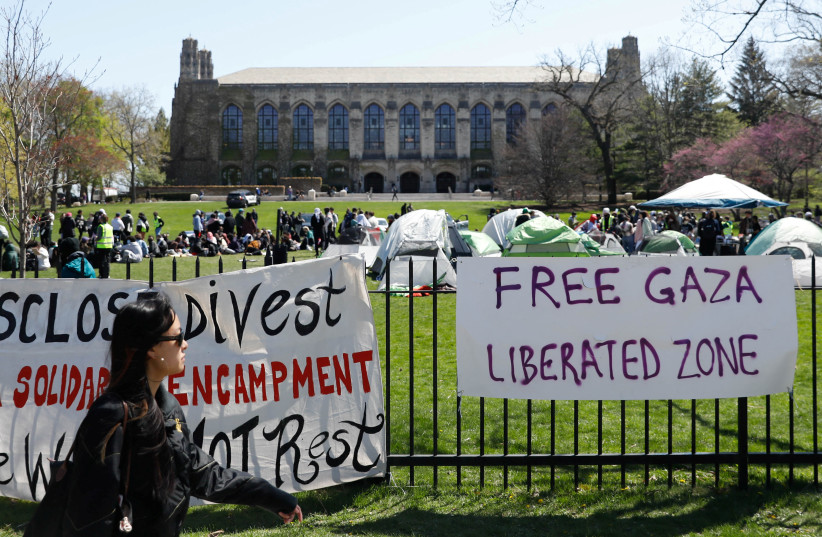Police dismantled encampments and arrested dozens of pro-Palestinian protesters at the Massachusetts Institute of Technology and the University of Pennsylvania on Friday morning, in the latest crackdowns on protests roiling US campuses.
Philadelphia officers in riot gear pushed reporters away from the encampment at the University of Pennsylvania before tearing down tents and tossing the belongings of protesters in a trash truck, the student newspaper reported. About 33 people were arrested, Penn's public safety department said.
A similar scene unfolded simultaneously at the Massachusetts Institute of Technology near Boston, where student journalists reported that riot police arrested at least ten student protesters before flattening the encampment and discarding their belongings.
The dawn raids were the latest efforts by school and local authorities to end such demonstrations at dozens of universities around the country. Students have called for a ceasefire in the Israel-Hamas war and have demanded their schools divest from companies with ties to Israel.
Campus encampment disputes

Many university leaders have called the encampments safety hazards and sought to end them ahead of May commencement ceremonies, which draw large crowds of outside visitors to campuses.
The protesting students say they want a ceasefire in Israel's incursion into Gaza and have demanded their schools divest from companies with ties to Israel.
One New York school affiliated with Columbia University - where protests inspired the nationwide wave of demonstrations - said on Thursday that its board of trustees had endorsed students' divestment calls.
The Union Theological Seminary said in a statement it had decided "to withdraw support from companies profiting from the war" after months of research into its investment portfolio. It added that "our investments in the war in Palestine are small because our previous, strong anti-armament screens are robust."
A similar step was taken by Evergreen State College in Washington state earlier this week, after officials agreed that a college committee would start proposing strategies for "divestment from companies that profit from gross human rights violations and/or the occupation of Palestinian territories."
The agreement was signed by Evergreen representatives and students on Tuesday, and protesters cleared the encampment themselves on Wednesday, according to local news reports.
MIT President Sally Kornbluth said in a statement on Friday that the ten individuals arrested on Friday "peacefully" submitted to police, but that the arrests came after escalating clashes between pro-Palestinian and pro-Israeli protesters.
"It was not heading in a direction anyone could call peaceful," she said, adding that "the cost and disruption for the community overall made the situation increasingly untenable."
Penn Interim President J. Larry Jameson said in a statement on Monday that "every day the encampment exists, the campus is less safe," citing reports of harassing and threatening speech, the defacement of campus landmarks, and a video of a student being denied entry to the encampment.
Since the first mass arrests at Columbia University in New York on April 18, at least 2,600 demonstrators have been detained at more than 100 protests in 39 states and Washington, DC, according to The Appeal, a nonprofit news organization. Some policing experts say such sweeping detentions can be counter-productive, fueling protests rather than deterring them.
Similar protests have sprung up at campuses in other countries as well. In western Canada, local police removed protesters from an encampment at the University of Calgary on Thursday, using "non-lethal munitions," according to a statement from the city, which said the number of arrests would be made public on Friday.
